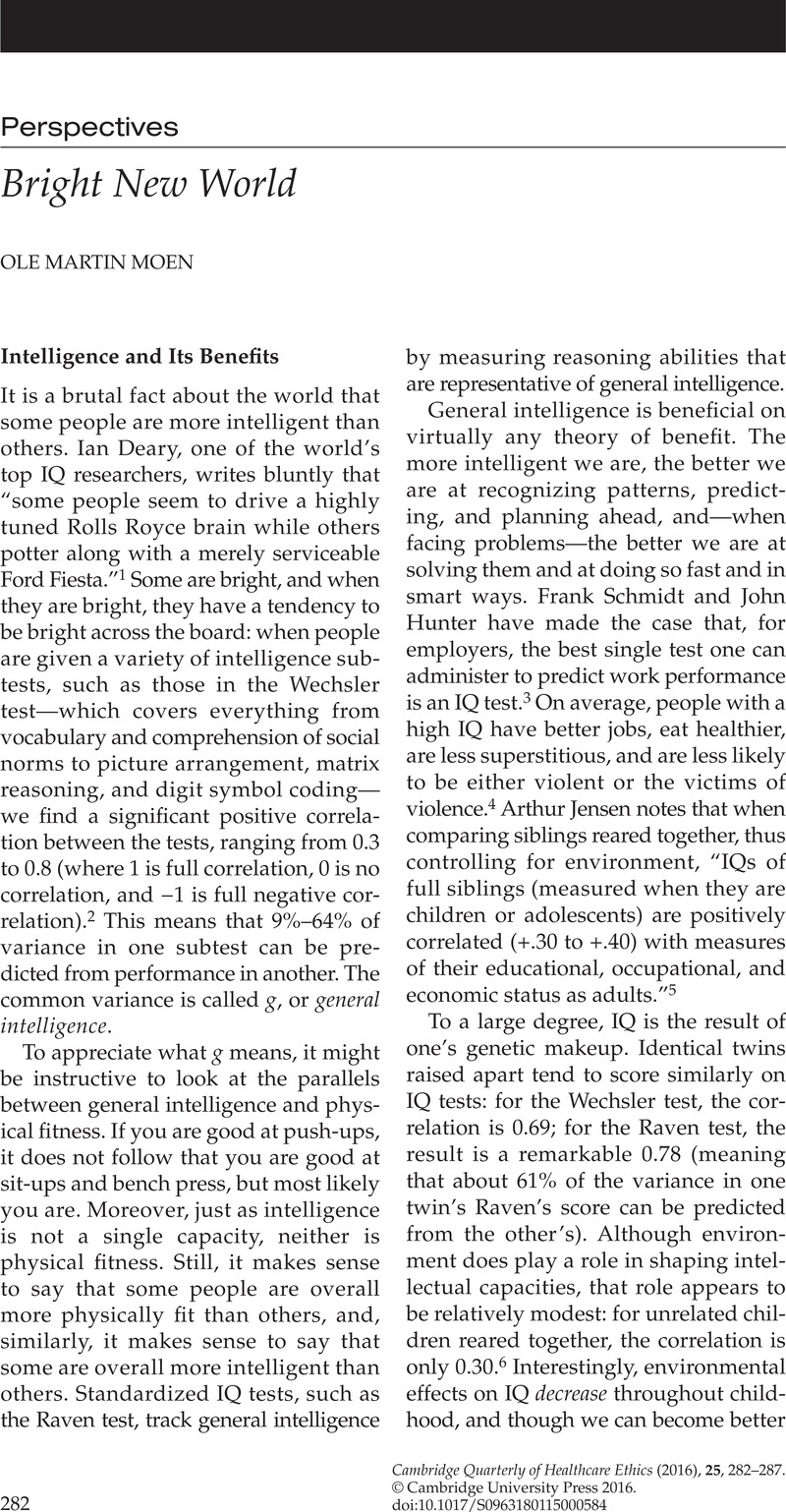
1. Deary, IJ. Intelligence: A Very Short Introduction. Oxford: Oxford University Press; 2001, at xi.CrossRefGoogle Scholar
2. Wechsler, D. Manual for the Wechsler Adult Intelligence Scale—III. New York: Psychological Corporation; 1997.Google Scholar
3. Schmidt, F, Hunter, J. The validity and utility of selection methods in personnel psychology: Practical and theoretical implications of 85 years of research findings. Psychological Bulletin 1998;124(2):262–74.CrossRefGoogle Scholar
4. Neisser, U, Boodoo, G, Bouchard, TJ, Boykin, AQ, Brody, N, Ceci, SJ, et al. Intelligence: Knowns and Unknowns. Washington, DC: Board of Scientific Affairs of the American Psychological Association; 1995, at 77–97.Google Scholar
5. Jensen, A. The g Factor. Westport, CT: Praeger; 1998, at 149–50, 551–2.Google Scholar
6. Kaufman, AS. IQ Testing 101. New York: Springer; 2009.Google Scholar
7. Te Nijenhuis, J, Van Vianen, AEM, Van der Flier, H. Score gains on g-loaded tests: No g. Intelligence 2007;35:283–300;CrossRefGoogle Scholarte Nijenhuis, J, Voskuijl, OF, Schijve, NB. Practice and coaching on IQ tests: Quite a lot of g. International Journal of Selection and Assessment 2001;9(4):302–8.CrossRefGoogle Scholar
8. Devlin, B, Daniels, M, Roeder, K. The heritability of IQ. Nature 1997;388(6641):468–71CrossRefGoogle Scholar. Plomin, R, Pedersen, NL, Lichtenstein, P, McClearn, GE. Variability and stability in cognitive abilities are largely genetic later in life. Behavior Genetics 1994;24(3):207–15.CrossRefGoogle Scholar
9. Woodley, MA. The social and scientific temporal correlates of genotypic intelligence and the Flynn effect. Intelligence 2012;40(2):189–204.CrossRefGoogle Scholar
10. Kristof ND. Raising the world’s IQ. New York Times 2008 Dec 4.
11. Eugenics. In: Unified Medical Language System (Psychological Index Terms). Bethesda, MD: National Library of Medicine; 2010 Sept 26.
12. For further elaboration, see Lynn, R. Eugenics: A Reassessment. Westport, CT: Praeger; 2001.Google Scholar
13. Meisenberg, G. How universal is the negative correlation between education and fertility? Journal of Social, Political, and Economic Studies 2008;33(2):225–7Google Scholar; Retherford, RD, Sewell, WH. Intelligence and family size reconsidered. Social Biology 1988;35(1–2):1–40.Google ScholarPubMed
14. Cochran, A, Hardy, J, Harpending, H. Natural history of Ashkenazi intelligence. Journal of Biosocial Science 2006;38(5):659–93.CrossRefGoogle ScholarPubMed
15. David, AS, et al. IQ and risk for schizophrenia: A population based cohort study. Psychological Medicine 1997;27:1311–23.CrossRefGoogle ScholarPubMed
16. See Persson, I, Savulescu, J. Unfit for the Future: The Need for Moral Enhancement. Oxford: Oxford University Press; 2012.CrossRefGoogle Scholar